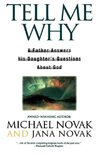
Europe
Source: Wikipedia. Pages: 130. Chapters: Romani people, Region, Continental Europe, Genetic history of Europe, Ages of consent in Europe, Organization for Security and Co-operation in Europe statistics, Ethnic groups in Europe, Antisemitism in Europe, Flags... Viac o knihe
Produkt je dočasne nedostupný
27.37 €
bežná cena: 31.10 €
O knihe
Source: Wikipedia. Pages: 130. Chapters: Romani people, Region, Continental Europe, Genetic history of Europe, Ages of consent in Europe, Organization for Security and Co-operation in Europe statistics, Ethnic groups in Europe, Antisemitism in Europe, Flags of Europe, Racism in Europe, Eurolinguistics, Monarchies in Europe, Religion in Europe, Demographics of Europe, Women in the military in Europe, Ageing of Europe, Culture of Europe, Immigration to Europe, AEK Athens in Europe, List of Parliamentary Speakers in Europe in 1984, Economic history of Europe, Human rights in Europe, List of Parliamentary Speakers in Europe in 1970, Climate of Europe, List of Parliamentary Speakers in Europe in 1965, Romance-speaking Europe, Old Europe, Area and population of European countries, Irish people in mainland Europe, Sick man of Europe, FEANTSA, Space A Travel, Date and time notation in Europe, European Grid Initiative, European Manifesto of Atomium Culture, Sabina, HIV/AIDS in Europe, European Summer Time, Aires Libres, Outline of Europe, Crisis situations and protests in Europe since 2000, European Schoolnet, Europeanisation, Az Európai Unió Szociál Politikája, MONEE Project, European Monetary System, DODDS European Championships, U4energy, Brevivulva, Aspidopleura, European Youth Portal, Rob Wainwright, Carpathian Euroregion, EUROMIL, Metapelma archetypon, Paneuropean Union, Central European Forum, Geological history of Europe, List of television stations in Europe, Eurodistrict, Greater Europe, Black Sea Euroregion, Law Publishers in Europe, Colonization in Europe, Pan-European Network Service, New Europe, COCIR, Eurocadres, Premium Internet, European Foundation, Exploration in Europe. Excerpt: Europe ( -¿p; or -¿p) is, by convention, one of the world's seven continents. Comprising the westernmost peninsula of Eurasia, Europe is generally 'divided' from Asia to its east by the watershed divides of the Ural and Caucasus Mountains, the Ural River, the Caspian and Black Seas, and the waterways connecting the Black and Aegean Seas. Europe is bordered by the Arctic Ocean and other bodies of water to the north, the Atlantic Ocean to the west, the Mediterranean Sea to the south, and the Black Sea and connected waterways to the southeast. Yet the borders for Europe-a concept dating back to classical antiquity-are somewhat arbitrary, as the term "continent" can refer to a cultural and political distinction or a physiographic one. Europe is the world's second-smallest continent by surface area, covering about 10,180,000 square kilometres (3,930,000 sq mi) or 2% of the Earth's surface and about 6.8% of its land area. Of Europe's approximately 50 states, Russia is the largest by both area and population (although the country has territory in both Europe and Asia), while the Vatican City is the smallest. Europe is the third-most populous continent after Asia and Africa, with a population of 731 million or about 11% of the world's population. Europe, in particular Ancient Greece, is the birthplace of Western culture. It played a predominant role in global affairs from the 16th century onwards, especially after the beginning of colonialism. Between the 16th and 20th centuries, European nations controlled at various times the Americas, most of Africa, Oceania, and large portions of Asia. Both World Wars were largely focused upon Europe, greatly contributing to a decline in Western European dominance in world affairs by the mid-20th century as the United Stat...
- Vydavateľstvo: Books LLC, Reference Series
- Formát: Paperback
- Jazyk:
- ISBN: 9781157701262


 Anglický jazyk
Anglický jazyk 









